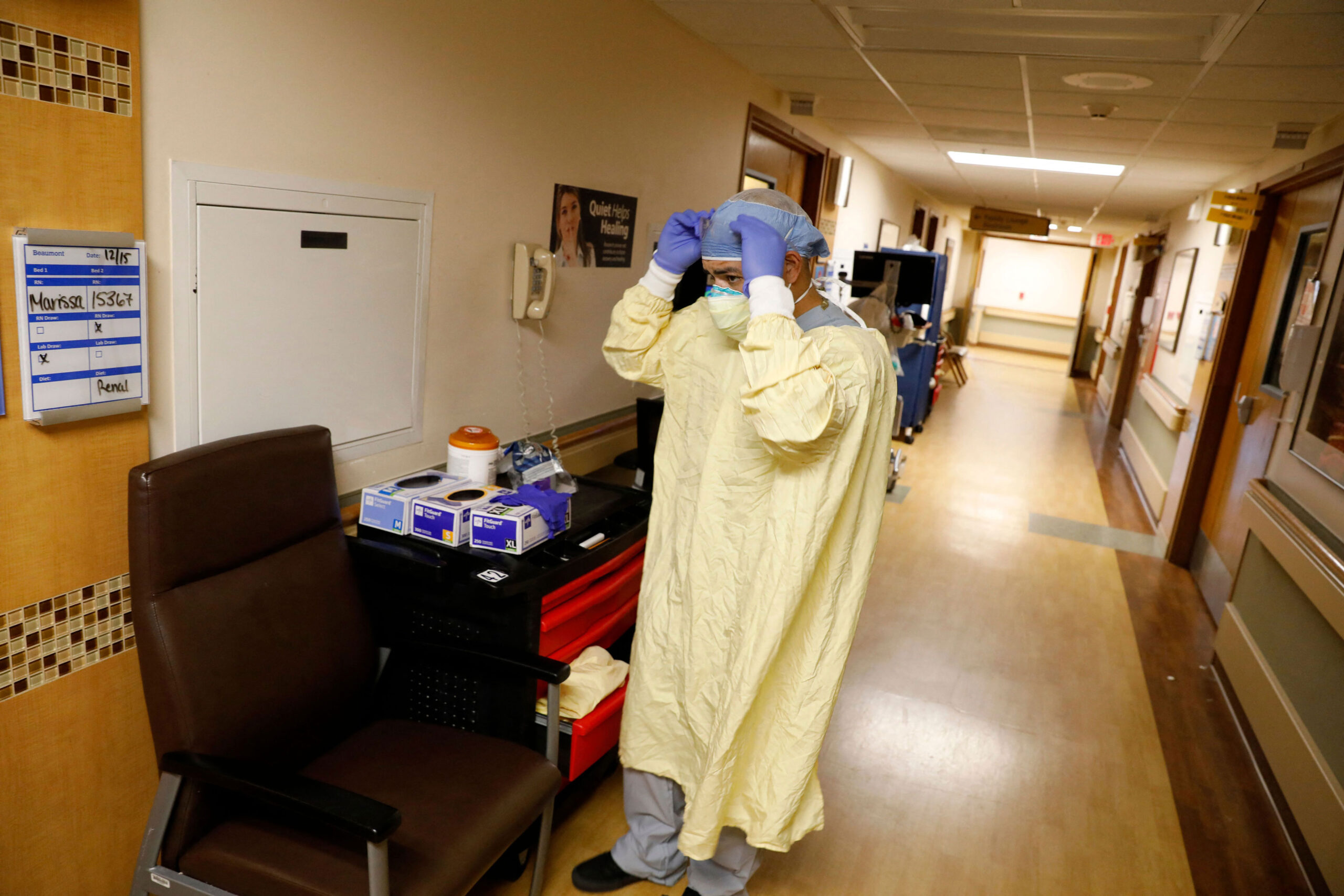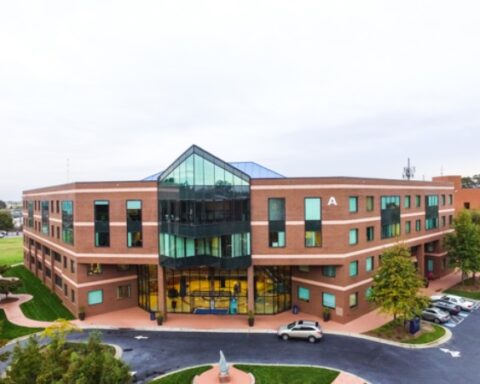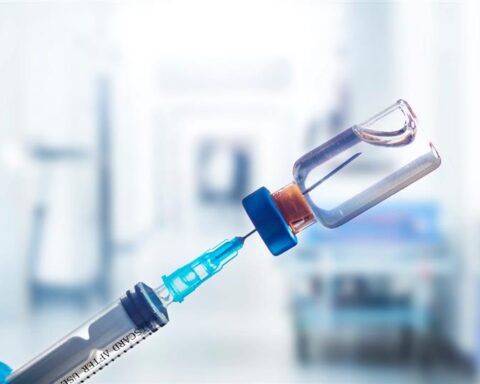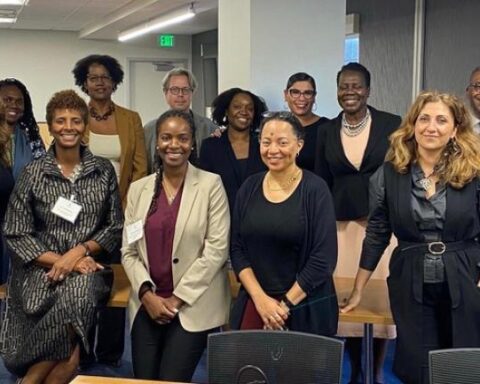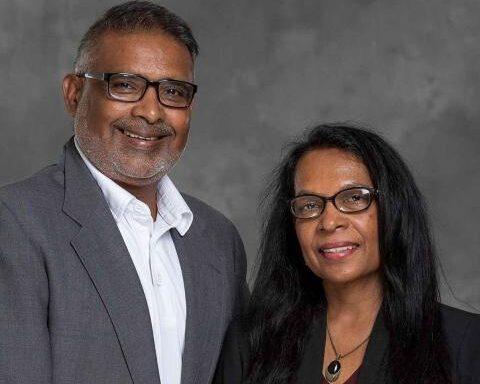With the potentially more transmissible Omicron now the most widely detected variant in the US, hospitals are preparing for additional Covid-19 cases as millions of Americans face infection.
And for the second year in a row, many doctors and nurses on the frontlines of the pandemic will be treating these patients over the Christmas holiday.
Haleigh Seizys, a Covid-19 ICU nurse at Nebraska Medical Center in Omaha, told CNN’s Ana Cabrera on Wednesday that staff are “very worried about what’s to come after the holidays,” urging people to get vaccinated to protect themselves and others against severe illness.
“Day to day, things are tough,” Seizys said. “I have a patient who is not doing well. It takes a lot of time and effort from several different people to try and help these patients improve.
“I truly am exhausted,” she said, although she remains motivated to “help whoever I can.”
Co-workers are trying to “rally around each other” in the face of rising hospitalizations. She said those who are against mask mandates, including elected leaders, should see what she and others do daily.
“I genuinely wish that they could come and follow me for just an hour so they could see how much their feet hurt, and see how many people are trying to hold back tears day to day, and they can see the trauma these patients are going through,” Seizys said. “These people are dying very traumatic deaths, and it’s so hard to watch.”
Nearly 70,000 Americans were hospitalized with Covid-19 as of Wednesday, according to Department of Health and Human Services data, up from around 45,000 in early November.
The US averaged 1,324 Covid-19 deaths a day over the last week, 11% higher than a week prior, according to Johns Hopkins data.
Because both the Delta and Omicron variants are circulating, it is more difficult to determine which is making people sicker. Additional research needs to be done regarding the characteristics of hospitalizations including length of stay, said Dr. Scott Gottlieb, a former commissioner of the US Food and Drug Administration and a current board member at Pfizer.
“We need to watch that very closely,” Gottlieb told CNBC on Wednesday, noting that it’s not clear whether the uptick is due to Delta or if “it’s an early indicator of rising Omicron infections winding up in the hospital.”
Early evidence shows that increased antibody levels developed through new vaccinations or booster doses can help protect individuals against a potentially more transmissible Omicron. Researchers are still determining if there is a lowered chance of severe disease with Omicron than with Delta or earlier variants.
The first death from Omicron in the US was reported in Texas, as an unvaccinated man in his 50s who previously had Covid-19 succumbed to a new infection. And cases in many parts of the country are continuing to rise as the variant has been detected in all 50 states.
The state of New York eclipsed its previous daily case record five times in less than a week, officials reported Wednesday. Gov. Kathy Hochul noted that while the hospitalization rate is “creeping up,” the state’s rate is still only 2/3rds of what it was in December last year.
“We’re not panicking. We have the resources we need,” Hochul said.
New vaccine and booster mandates
On the heels of the city hitting another record high of cases, Washington, DC mayor Muriel Bowser said proof of vaccination will be required for those over the age of 12 to enter restaurants, gyms and other gathering places.
“The vaccines are working, and they’re working well to keep people out of the hospital and to keep people from dying from Covid-19. So we don’t need those type of shutdowns, but we do need more people to get vaccinated and boosted,” Bowser said at a press conference Wednesday.
Officials said grocery stores, retail stores and museums would not be required to check for proof of vaccines, and religious institutions are exempt. Eligible students in DC schools are also mandated to get vaccinated by March 1.
Many universities are adjusting spring semesters by transitioning to online learning temporarily, and others are mandating booster doses for vaccinated students and staff. Duke University this week joined the list of schools that have recently announced a booster vaccine requirement, including Syracuse, Notre Dame, Michigan State, Hofstra and NYU.
“These steps will help limit a potential outbreak on our campus and in our community and protect those most vulnerable to this virus,” a statement from Duke said.
In California, health care workers — already under a vaccine mandate — will be required to get a booster shot, and students will be tested before returning to school in January, Gov. Gavin Newsom said Wednesday.
Covid-19 testing crunch arrives
With the surge of Omicron cases, and Christmas and New Year’s fast approaching, the demand for Covid-19 tests is greatly exceeding current supply and has resulted in long lines nationwide as well as a risk of positive cases not being detected.
The Biden administration plans to provide 500 million new tests by next month, yet time will be needed to fulfill the orders and details are still being worked out, a senior administration official told CNN.
“To be clear, we’re not sending a test to every single home in the country,” White House press secretary Jen Psaki said during a press briefing. “We are providing an opportunity, another opportunity or ability for people to … go on a website and request a test if their preference is to get that test to their home. Not everybody will do that. But we want people who want to do that, who want to get tested, who want to request test that way to have that ability to do (it).”
CVS Health and Walgreens — the two largest pharmaceutical chain stores in the US — announced they are limiting the number of at-home Covid-19 kits customers can buy due to significant demand.
Additional treatments on horizon
Officials and health experts highlighted the FDA’s authorization Wednesday of the first pill to treat Covid-19 as another important tool.
Pfizer’s Paxlovid “should be initiated as soon as possible after diagnosis of Covid-19 and within five days of symptom onset,” according to an FDA statement.
Combining two antiviral drugs, Paxlovid is to be prescribed by a doctor and administered as three pills twice a day for five days.
The White House has purchased 10 million courses of Pfizer’s antiviral treatment, with 265,000 available in January and “with monthly totals of pills ramping up across the year and all 10 million treatment courses delivered by late summer,” according to Covid-19 response coordinator Jeff Zients.
Paxlovid is not for pre- or post-exposure prevention of Covid-19 and “is not a substitute for vaccination in individuals for whom Covid-19 vaccination and a booster dose are recommended,” the FDA said.
Another antiviral pill, molnupiravir from Merck, is awaiting emergency use authorization from the FDA. Advisers to the agency earlier recommended its authorization in a narrow vote.

